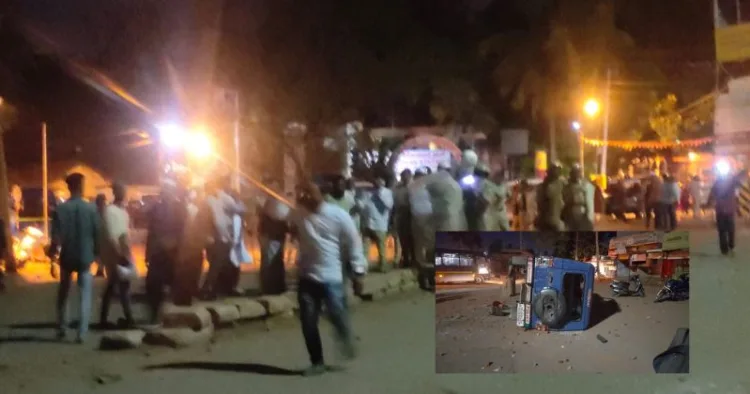BENGALURU: The Karnataka government’s recent decision to drop the Hubballi riots case has sparked a political storm. The ruling Congress party, led by Chief Minister Siddaramaiah, has come under fire from opposition BJP leaders for withdrawing the case involving AIMIM leaders and several others, which stemmed from the violent clashes in Hubballi last year. The decision, taken during a cabinet meeting chaired by CM Siddaramaiah, has been met with criticism for alleged political motivations aimed at appeasing the Muslim community.
The Hubballi riots occurred on April 16, 2022, after a youth posted a controversial social media message. In response, a large mob gathered near the Old Hubballi Police Station and engaged in violent protests, pelting stones at police personnel and damaging over 10 police vehicles. The violence resulted in serious injuries to two police officers. In the aftermath, the Karnataka police registered 11 FIRs and 155 cases against individuals involved in the riots.
The case was notably contentious, with various police and legal departments opposing the withdrawal. Despite this, the Karnataka government, under Deputy Chief Minister DK Shivakumar’s recommendation, decided to close the case. BJP’s Social Media Head, Amit Malviya, publicly condemned the move on social media, accusing the Congress government of engaging in “Muslim appeasement politics.” He criticized the government for disregarding the serious nature of the riot, which involved attacks on police officers and public property.
Malviya tweeted, “The Congress government has withdrawn the Old Hubballi Police Station riot case despite opposition from the legal and police departments. AIMIM leader Mohammad Arif and others had threatened to storm the police station. Several officers were severely injured during the violence. This move is nothing but an attempt by DK Shivakumar to appease the Muslim community.”
The violence erupted in April 2022 after a social media post offended certain sections of the community, resulting in mass protests and clashes with law enforcement. A group of over 100 to 150 individuals allegedly attacked two police constables near Kabaspet, according to the FIR filed. Video footage later emerged showing rioters overturning a police jeep, exacerbating the situation.
As the clashes intensified, the Karnataka police had to resort to filing multiple FIRs, some of which led to the arrests of AIMIM leaders, including Mohammad Arif. Despite the gravity of the case, political pressure mounted to withdraw it, with DK Shivakumar playing a pivotal role in the decision.
The BJP, which has accused Congress of pandering to minority communities, views the withdrawal as another instance of the Congress-led government favoring certain communities at the cost of justice. The opposition’s outrage is primarily directed at Deputy CM DK Shivakumar, who had personally written to the Karnataka government requesting the case be dropped.
Amit Malviya’s criticism has resonated with the BJP’s larger narrative, accusing the Congress government of consistently prioritizing political appeasement over law enforcement and justice. Other BJP leaders have echoed similar sentiments, warning that the decision could set a dangerous precedent for future riot-related cases in Karnataka.
The decision to withdraw the case has raised eyebrows within the police department as well. High-ranking police officers reportedly expressed concerns over the withdrawal, given the nature of the violence and the injuries suffered by police personnel. Some officials noted that violent actions, especially those targeting law enforcement, should not be dismissed lightly.
Moreover, evidence has collected , including CCTV footage showing rioters overturning police vehicles, adding to the severity of the case. The video is likely to play a significant role in the ongoing debate about the appropriateness of withdrawing the case.
The withdrawal of the Hubballi riots case has triggered an outcry not only from political figures but also from sections of the public who feel that such a decision undermines the rule of law. Several groups have questioned the Karnataka government’s motivations, accusing it of failing to hold individuals accountable for the violent acts during the Hubballi riots.
While Congress has maintained that the decision was taken in the best interests of justice and reconciliation, the controversy is far from over. With both political and public opinion sharply divided, the Karnataka government now faces the challenge of defending its actions amid growing backlash.
As investigations into the riots continue and more details emerge, the political implications of this decision are likely to play a significant role in shaping future debates about law enforcement, justice, and governance in the state.



















Comments